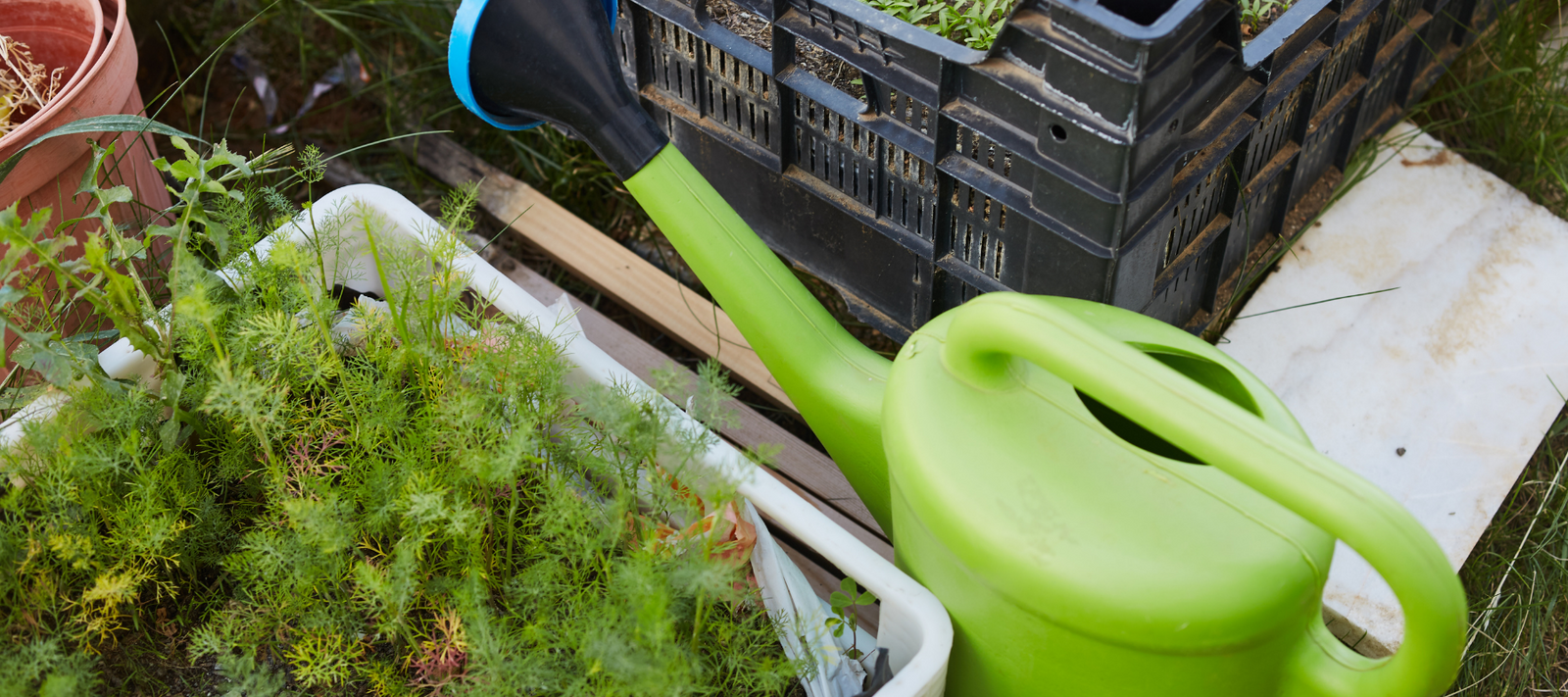
INSPIRED BY DIGGERS - 20 YEARS AGO!
The idea for a house that produces food for its occupants first occurred to Joost Bakker when he was 12 years old.
Some years later, about 20 years ago, Joost was given a copy of Diggers first self-published book, The Australian Vegetable Garden, as a birthday present from his partner’s grandmother, and he was inspired by the Diggers mini-plot self-sufficiency garden plan, where a family’s vegetable needs are met using just 40m2 of cultivated ground.
The childhood inspiration has stayed with him and, for the last 20 years, Joost has been experimenting with zero-waste projects in hospitality, events and dwellings.
His idea of a house that can service the needs of its occupants has since developed well beyond food and now incorporates all aspects of sustainable living, including bio-digestion of organic waste, renewable energy, rainwater capture, plant-based building materials and repurposing waste resources. All of these elements and ideas have been brought together in an innovative residential installation on the edge of Melbourne’s CBD.
Right now, as you read this magazine, Jo Barret and Matt Stone, two acclaimed zero-waste chefs and long-time friends of Joost, are living in this demonstration house, harvesting and cooking food grown all around them.
With an abundance of summer vegetable crops from the integrated gardens, freshwater mussels and yabbies harvested from the aquaponics tanks and mushrooms grown under the stairs, they are sure to enjoy a diverse and nutrient-rich diet – all produced from their immediate living environment.
With the inspiration of Diggers 40m2 mini-plot ingrained in his mind, Joost installed more than double this area for this house, with a total of 87m2 of growing area.

RE-PURPOSED SKATEBOARD DECKS WERE CUT UP AND USED AS KITCHEN TILES.
Water-saving and nutrient-rich wicking beds
The beds in the growing area are comprised of food-grade barrels repurposed as wicking beds. But these aren’t just your standard water-saving wicking beds. These growing beds contain a specially formulated mix of ingredients, based on the intensive research of an Australia software developer turned water conservation teacher, Colin Austin.
Faced with the problems of intermittent yields and crop failures in Ethiopia, Colin’s research into wicking bed technology led him to the study of soil composition for food growing systems. With nutrition and quality produce as central tenets of the Future Food System’s philosophy, the principles of Colin’s work were directly applicable.
The composition of the ‘soil’ was carefully crafted using Colin’s principles and includes composted sawdust, biochar, rock-dust, worms and worm-castings, all inoculated with mycelium to create a nutrient dense and super-fertile substrate. The growth rate and vigour of all the produce stands as a testament to a healthy growing system.

THE HOUSE PROUDLY FLIES A ‘ZERO WASTE’ FLAG.
Innovative ingredients
Matt and Jo have a cornucopia of fresh and organic ingredients to feast on during their stay. A quick glance around the garden reveals a wide range of vegetable crops, including Diggers selections such as ‘Five Colour’ silverbeet, ‘Dragon’s Tongue’ climbing beans, Japanese ‘Futsu’ pumpkins, ‘Tommy Toe’ tomatoes and countless crops of picking greens. True to the ethos, any excess produce is not wasted but preserved with ferments and pickling. Faced with the challenge of growing a dairy milk substitute, the brains-trust hit upon ‘Tiger Nut’ or ‘Yellow Nut Sedge’ (Cyperus esculentus), a ubiquitous wetland sedge first recorded as a food in ancient Egypt, where its virtues were regarded so highly that it was interred in the tombs of the Pharaohs. The plant produces a sweet milk-giving tuber, which is super-easy to grow, takes little room or resources, and the dried tubers (which are available at health and whole food stores) are easily processed to a sweet and versatile milk.
It is the ‘re-discovery’ and promotion of inventive thinking around food and sustainability that sits at the heart of this project.
Gardening is the new surfing
In a world changed forever on the back of the COVID-19 pandemic, we’ve all drawn a breath and taken a look at the way we live our lives. As green-tech entrepreneurs like Elon Musk and Mike Cannon-Brookes show the way towards clever technologies and their role in mitigating the impacts of human-induced climate change, there is a renewed optimism that solutions are not just practicable, they make economic sense too.
This has reignited interest in sustainability and how we can all do our bit at home, resulting in a spike in gardening, especially the cultivation of fruit and vegetables.
Joost is excited about this moment in time as gardening discovers it’s ‘cool’ and many new gardeners get to enjoy the riches of homegrown food.
“Gardening is the new surfing,” says Joost, who is thrilled to see so many people being inspired to grow their own, spurring him on in his mission of “making urban food the coolest culture on earth”.
Many thousands of people will have an opportunity to engage with this project, either by visiting in person or by following online, tapping into a movement that takes an optimistic and solutions-focussed approach to the environmental crisis we find ourselves in.
Central to Joost’s philosophy is the basic ecological principle of recycling, “There is no waste in nature, humans invented the concept,” says Joost. “We need to recognise that in order to be truly sustainable we need to live within an ecosystem.”
Future Food Systems exemplifies our potential to create positive impact by changing the way we build, live and eat, showing what can be done with motivation and innovative thinking. To learn more about this landmark project, please visit: https://www.futurefoodsystem.com/

JOOST BAKKER WITH CLIVE BLAZEY AMONGST THE ABUNDANT VEGIE CROPS.



